New World Heart Report underscores urgent need to address obesity to reduce Cardiovascular Disease
The World Heart Federation (WHF) has launched its flagship publication, the World Heart Report 2025, with a focus on obesity and its growing role in cardiovascular disease (CVD) worldwide.
The World Obesity Federation contributed substantively to the report, which delivers a stark warning: without urgent, coordinated action, rising obesity rates will continue to drive preventable heart disease and strain global health systems.
The report brings together the latest global data on obesity prevalence, mortality from high BMI, and the economic cost of inaction. It reveals that nearly 1 in 10 global CVD deaths are now attributable to high BMI, with mortality from obesity-related heart disease having more than doubled in the past three decades.
If trends continue, nearly two-thirds of adults over the age of 25 will be living with overweight or obesity by 2050, with the highest projected increases in low- and middle-income countries - those least equipped to absorb the financial and healthcare burden.
Obesity and CVD: An escalating global crisis
The report makes clear that obesity is not simply a risk factor for CVD - it is a disease that fuels a range of cardiovascular conditions, including hypertension, heart failure, and stroke.
The authors highlight the complex biological, environmental, social and commercial drivers of obesity, and argue that treating obesity is essential to preventing heart disease.
Among the report’s striking findings:
- In 2021, 3.7 million deaths were attributable to high BMI, including 1.9 million deaths from CVD.
- High BMI now ranks among the top 10 global risk factors for cardiovascular mortality.
- Women face a higher burden: over 10% of global CVD deaths in women are attributable to obesity, compared to 8.9% in men.

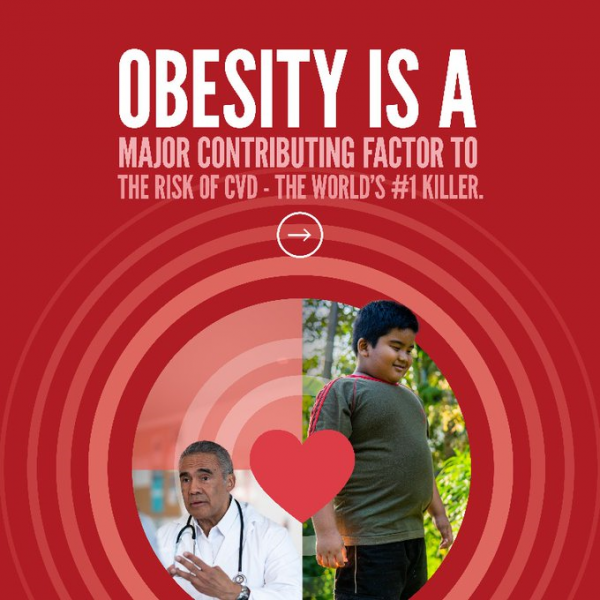
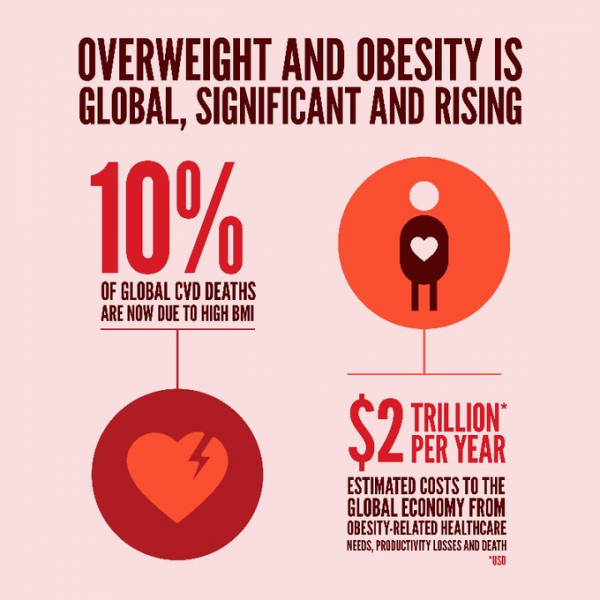

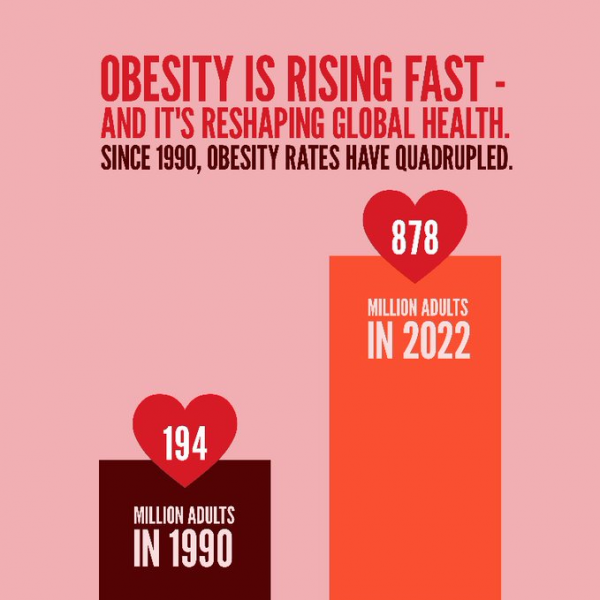
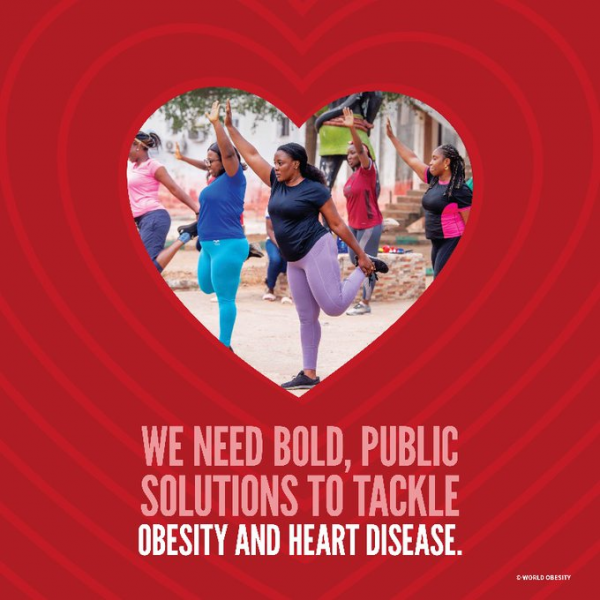

From stigma to systems change
The report also tackles widespread misconceptions about obesity - including the persistent view that it is merely a lifestyle choice - and calls for person-first language and stigma-free care. It highlights how stigma within healthcare settings can lead to delayed diagnoses, poorer care, and worse outcomes.
Drawing on recent efforts such as the Lancet Commission on the Definition and Diagnosis of Clinical Obesity, the report advocates for a more nuanced diagnostic approach that moves beyond BMI alone and incorporates clinical risk, health impact, and direct measures of adiposity.
read the report
Key recommendations
The World Heart Report 2025 provides a roadmap for action, offering targeted recommendations for governments, clinicians, researchers, and multilateral agencies. These include:
- Developing national obesity strategies with clear targets and integration into primary healthcare.
- Expanding access to effective treatments, including obesity medications and lifestyle support programmes.
- Countering weight stigma in health policy and care delivery, and promoting patient-centred approaches.
- Strengthening health professional education to ensure clinicians are equipped to manage obesity and its cardiovascular consequences.

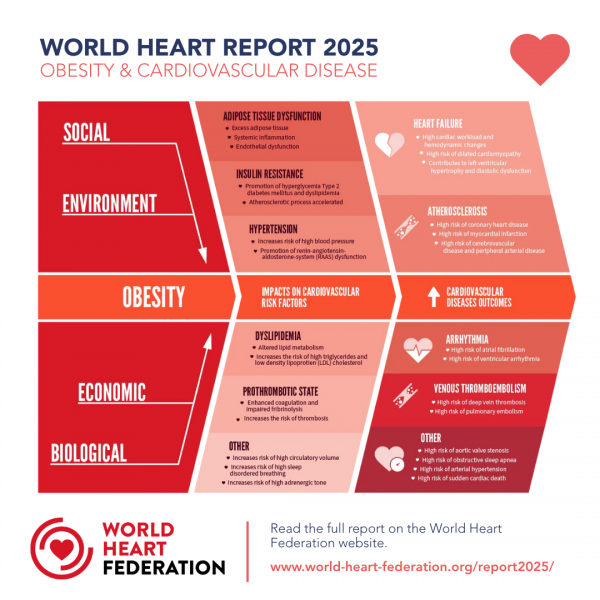
A call to action ahead of the UN High-Level Meeting
The launch of this report comes at a critical time, as countries prepare for the UN High-Level Meeting on NCDs in September 2025. With CVD remaining the world’s leading cause of death, and obesity emerging as a primary driver, the report urges leaders to prioritise obesity within broader NCD strategies and invest in scalable, equity-focused interventions.
The World Obesity Federation is proud to have supported the development of this important resource and echoes the report’s call for urgent, systems-level action to reduce the impact of obesity and cardiovascular disease on communities worldwide.
Read the report
Access the full World Heart Report 2025, 'Obesity and Cardiovascular Disease', on the World Heart Federation's website.
Read the report